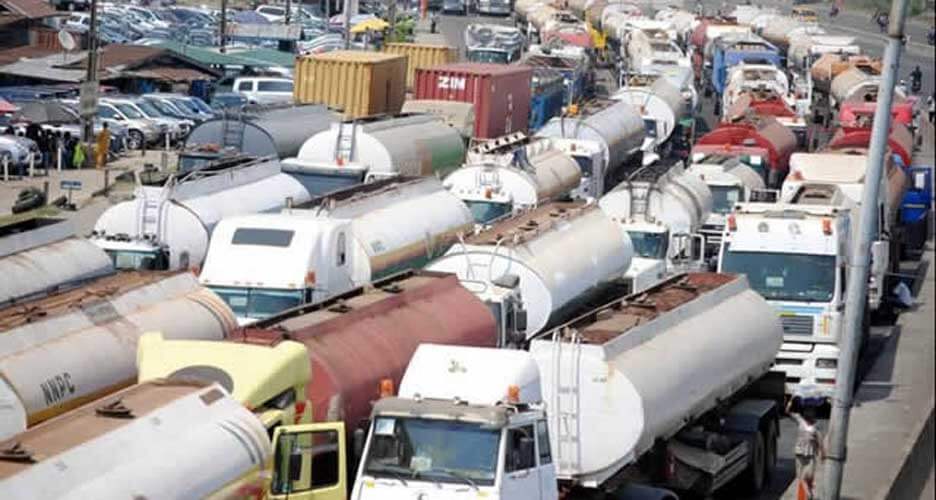
Following the resurgence of fuel scarcity across Lagos state which led to long queues of tanker trucks clogging the port access roads, respite appears to have returned to the Oshodi- Mile 2- Tin Can-Apapa Port access road as the queues have significantly reduced, Shipping Position Daily reports.
Although remnants of the queues still linger in certain spots as tanker drivers report improved access to loading facilities at the tank farms, checks by our correspondent revealed that the chaotic scenes that characterized the area last week have given way to a better traffic flow.
As at Monday, last week, long queues of tankers were spotted along the Oshodi-Cele-Mile 2-Tin Can port axis on the expressway, suspected to be a lingering effect of the fuel scarcity experienced in the previous week.
However, by Thursday last week, the port access road was observed to be mostly free from the congested tanker queues, although some pockets of queues persisted at strategic locations such as Ilasamaja, Second Rainbow, Fatgbems, Mile Two bus stops, and at the entrances of the tank farms at Coconut.
Our correspondent, who visited the area, spoke with several tanker drivers who confirmed that there were significant improvements in loading activities at the tank farms. This, according to them, has contributed to the reduction in the length of the queues of tankers on the Port access road in recent times.
Despite this improvement, some tanker drivers reported that they still faced delays, taking about three to four days to gain access to the tank farms for loading.
Speaking with Shipping Position Daily last week, one of the tanker drivers who identified himself as Adamu Hassan shared his experience, noting that the queue of trucks is now moving more swiftly, with drivers typically spending just a day or two to reach the tank farms for loading.
Hassan further explained that the management of the Petroleum Tanker Drivers (PTD) union has implemented their own truck call-up system and established a task force to ensure that tankers are directed to the tank farms in an orderly manner. He said this system has greatly reduced the waiting time and improved the overall flow of traffic on the access road.
“The queue is moving. Although we had some challenges last week, due to the fuel scarcity, now we barely spend a day or two to access the tank farms for loading. We have our own call-up system and task force that directs the tankers to the tank farms in an orderly manner. We only face minor challenges and stoppages when a tanker breaks down for maintenance and repair”, Hassan noted
Also speaking, a freight forwarder who frequently plies the route to his office at the Coconut area of the Mile 2 Tin Can port access road, Mr Kingsley Maduka noted that while the gridlock had significantly eased, the situation seems to be getting worse.
While the traffic situation has improved in some areas, particularly from Mile 2 to Coconut, Maduka pointed out that the congestion remains severe on Warehouse Road, which leads directly to the Apapa port.
“The long queues have reduced significantly, but it appears they are coming back. The grid is coming back gradually. But be that as it may, in the last meeting, they promised to do something. They have recently been complaining of the connivance of touts with some staff to extort money from the drivers.
“However, the traffic is not that bad, mostly from Mile 2 to Coconut. It is not as bad as the warehouse road heading to the port” Maduka concluded.
Speaking earlier, the Secretary of the National Association of Road Transport Owners (NARTO), Mr. Aloga Ogbodo emphasized that the truck drivers were not to blame, but were operating in response to the prevailing circumstances.
According to Ogbodo, Nigeria has approximately 30 petroleum products depots scattered throughout the country, and each of these depots is meant to receive petroleum products. He lamented that the major challenge being faced is the non-functionality of many of the regular depots due to pipeline vandalization.















